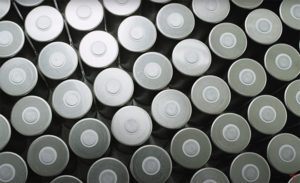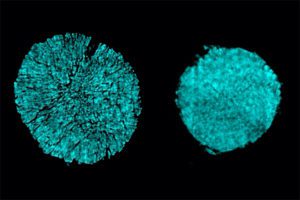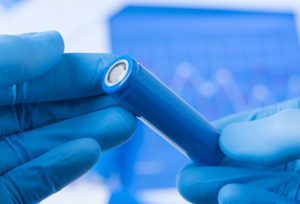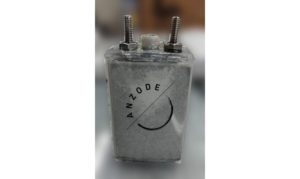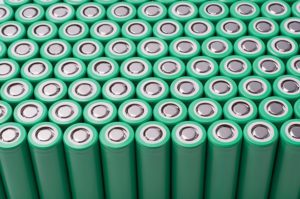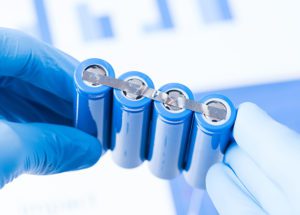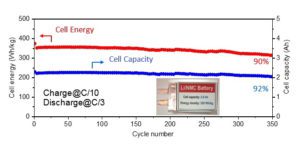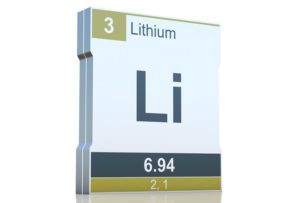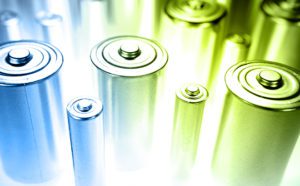In 2020, Tesla deployed 18,700 tons of lithium carbonate equivalent (LCE) in the batteries of its new EVs, more than the next four EV makers (BYD, VW, Renault and Audi) combined, according to the report EV Battery Capacity and Battery Metals Tracker by Adamas Intelligence. In total, 67% of Tesla’s 2020 lithium consumption was driven… Read more »
Search Results Found For: "lithium metal"
MIT researchers describe new electrolyte to reduce metal electrode degradation
A team of researchers led by MIT Professor Ju Li has found an electrolyte that overcomes the problems associated with metal electrodes, which could result in batteries with longer lifespans and more energy storage capacity. The research was reported in the journal Nature Energy in a paper by Li and others. The researchers say the… Read more »
Momentum Technologies licenses ORNL process to recover metals from batteries
Momentum Technologies, a Dallas-based materials science company focused on extracting critical metals from electronic waste, has licensed a process developed by the Oak Ridge National Laboratory (ORNL) for recovering cobalt and other metals from spent Li-ion batteries. Several critical elements, such as cobalt, nickel, lithium and manganese, are used in EV batteries. Using ORNL’s Membrane… Read more »
Anzode gets $1.7-million CEC grant for non-lithium batteries
Battery startup Anzode has received a $1.7-million award for a three-year effort to develop a new generation of non-lithium batteries, as part of the California Energy Commission (CEC) Grant Funding Opportunity “Developing non-Lithium Ion Energy Storage Technologies to Support California’s Clean Energy Goals.” The CEC has awarded almost $11 million for developers of energy storage… Read more »
EnergyX and ProfMOF partner on lithium-ion nanotechnology
Energy Exploration Technologies (EnergyX) and ProfMOF have announced a partnership to promote the use of Metal-Organic Frameworks (MOFs), a relatively new class of nanotechnology materials suitable for applications in the renewable energy and battery storage fields. Capable of separating, transporting and isolating specific elements at the ionic level, MOFs are dense and malleable materials made… Read more »
Silica-based cathodes could enable long-life lithium-sulfur batteries
Scientists from the Daegu Gyeongbuk Institute of Science and Technology (DGIST) have developed a silica-based cathode for lithium-sulfur batteries, which they say could enable batteries that last for over 2,000 charge/discharge cycles. Lithium-sulfur batteries (LSBs)—composed of a sulfur-based cathode and lithium anode submerged in a liquid electrolyte—are promising candidates to replace lithium-ion batteries because of… Read more »
Battery500 Consortium steadily increases energy density and cycle life of Li-metal cells
Launched in 2017, the Battery500 Consortium is a multi-institution program working to develop next-generation lithium metal anode cells delivering gravimetric energy density of up to 500 Wh/kg. The Battery500 team is composed of scientists and engineers from four national laboratories and five universities. Two of the researchers on the team, Professor Stanley Whittingham of Binghamton… Read more »
California Energy Commission funds two lithium recovery projects in Salton Sea region
The California Energy Commission (CEC) has awarded $7.8 to two lithium recovery projects in the Salton Sea region, where high concentrations of the soft metal are found dissolved in the brine produced by geothermal hotspots. The Salton Sea Known Geothermal Area contains an estimated six million tons of recoverable lithium. However, there are significant barriers… Read more »
New potassium metal battery design could solve dendrite problem
In a paper published in Proceedings of the National Academy of Sciences, researchers from Rensselaer Polytechnic Institute demonstrated how they can overcome the dendrite problem to create a metal battery that performs nearly as well as a lithium-ion battery but relies on potassium, which the researchers say is a more abundant and less expensive element…. Read more »
MIT team develops novel solid electrolytes and pure lithium anodes
New research from MIT could lead to batteries that pack more power per pound and last longer. A new paper co-authored by Yuming Chen and Ziqiang Wang at MIT explores the idea of using pure lithium as the battery’s anode. The design is part of a concept for developing safe solid-state batteries by dispensing with… Read more »




